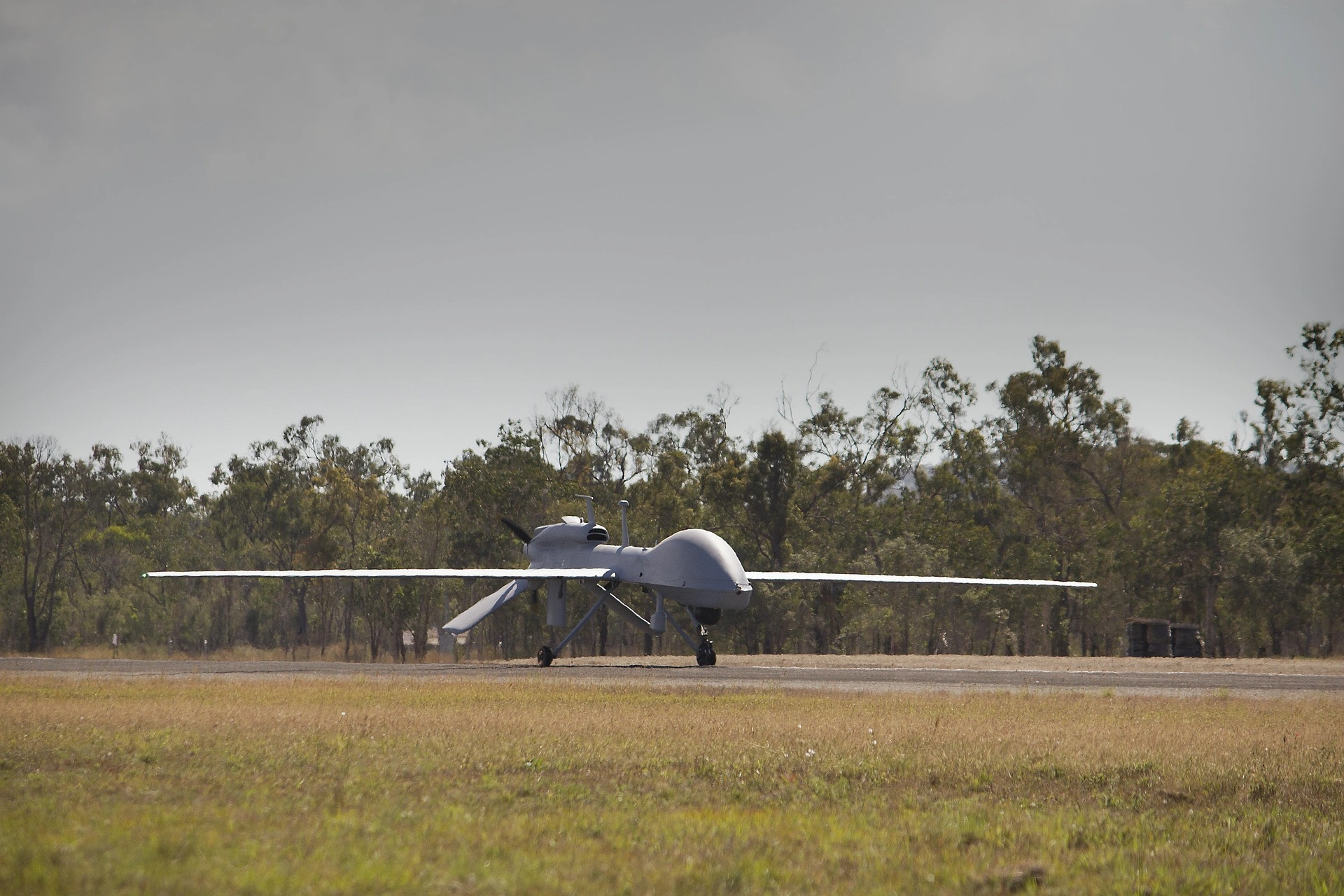New AI breakthrough promises to end ‘drift’ that costs the world trillions

John E. Kaye
- Published
- News, Technology

A new artificial intelligence framework claims to have solved one of the technology’s biggest flaws by producing identical answers every time — a breakthrough its creator says could restore trust and stability to the machines now driving global decision-making
A British researcher says he has solved one of artificial intelligence’s biggest flaws — the fact that it can’t give the same answer twice.
Martin Lucas, Chief Innovation Officer at Matrix OS and TheaHQ, has unveiled a system called Decision Physics which, he claims, can make AI completely consistent. Unlike current models such as ChatGPT or Google’s Gemini, which rely on probability and can contradict themselves from one question to the next, Decision Physics is said to produce the same result every time.
In live trials, 1,000 identical prompts generated 1,000 identical responses, with every result independently verified through audit-grade receipts to confirm perfect reproducibility.
The results, published in a report titled The 30 Per Cent Problem: The World Is Arguing with Its Own Machines, suggest that the instability built into modern AI could be costing the global economy as much as £17.2 trillion in lost value.
“AI has become our new infrastructure,” Lucas said yesterday. “But it’s built on probability, not physics. The same model can disagree with itself across two runs — which means trust, compliance, and even accountability collapse before scaling begins. We needed a new foundation. So we built one.”
The new framework replaces statistical guesswork with what Lucas calls ‘deterministic computation’ — meaning identical questions, under identical conditions, always give identical answers. His team has set out four “laws” governing the process: identical inputs yield identical outputs; equivalent statements resolve in the same way; every answer carries a record of its origin; and results stay stable even when the model or data are updated.
The test environment, known as the TheaHQ Deterministic Build Pack, uses fixed clocks and verification receipts to remove randomness entirely. Each of the 1,000 trials produced a result that was identical at the smallest unit of digital measurement. The system generated a matching bit-level signature, an electronic fingerprint used in computing to confirm that two files are completely the same. The verification proved that there was no variation or randomness in any of the system’s responses.
Lucas, who has advised UK Prime Ministers on data strategy and authored several books on decision systems, believes the discovery marks the start of a new era for artificial intelligence. He said the ability to guarantee identical results could transform how AI is used in finance, healthcare, defence and government — sectors where accountability and compliance are critical. Regulators could, for the first time, trace every automated decision back to its source.
Matrix OS describes itself as a decision-engineering platform combining behavioural science, mathematics and automation. Its research arm, TheaHQ, focuses on building deterministic systems that integrate emotional intelligence, symbolic reasoning and reproducibility.
It said: “Artificial Intelligence, as we know it, has a 30% problem. Every large language model (from ChatGPT to Gemini) produces different answers to the same question, even under identical conditions. That inconsistency isn’t a bug. It’s a feature of probability. And it’s costing the world trillions.”
READ MORE: ‘GITEX GLOBAL 2025 to spotlight AI’s expanding role in future-critical sectors’. The world’s largest technology and AI event returns to Dubai this month for its 45th edition, bringing together more than 6,800 companies and 2,000 startups from 180 countries to showcase breakthroughs in biotech, quantum computing, semiconductors and data infrastructure. As an official media partner, The European will report from Dubai with exclusive coverage and analysis from the leaders shaping the next wave of AI and technology.
Do you have news to share or expertise to contribute? The European welcomes insights from business leaders and sector specialists. Get in touch with our editorial team to find out more.
Main image: Tara Winstead/Pexels
RECENT ARTICLES
-
 Hornby sells iconic British slot-car brand Scalextric for £20m
Hornby sells iconic British slot-car brand Scalextric for £20m -
 WPSL targets £16m-plus in global sponsorship drive with five-year SGI partnership
WPSL targets £16m-plus in global sponsorship drive with five-year SGI partnership -
 Dubai office values reportedly double to AED 13.1bn amid supply shortfall
Dubai office values reportedly double to AED 13.1bn amid supply shortfall -
 €60m Lisbon golf-resort scheme tests depth of Portugal’s upper-tier housing demand
€60m Lisbon golf-resort scheme tests depth of Portugal’s upper-tier housing demand -
 2026 Winter Olympics close in Verona as Norway dominates medal table
2026 Winter Olympics close in Verona as Norway dominates medal table -
 Europe’s leading defence powers launch joint drone and autonomous systems programme
Europe’s leading defence powers launch joint drone and autonomous systems programme -
 Euro-zone business activity accelerates as manufacturing returns to expansion
Euro-zone business activity accelerates as manufacturing returns to expansion -
 Deepfake celebrity ads drive new wave of investment scams
Deepfake celebrity ads drive new wave of investment scams -
 WATCH: Red Bull pilot lands plane on moving freight train in aviation first
WATCH: Red Bull pilot lands plane on moving freight train in aviation first -
 Europe eyes Australia-style social media crackdown for children
Europe eyes Australia-style social media crackdown for children -
 These European hotels have just been named Five-Star in Forbes Travel Guide’s 2026 awards
These European hotels have just been named Five-Star in Forbes Travel Guide’s 2026 awards -
 McDonald’s Valentine’s ‘McNugget Caviar’ giveaway sells out within minutes
McDonald’s Valentine’s ‘McNugget Caviar’ giveaway sells out within minutes -
 Europe opens NanoIC pilot line to design the computer chips of the 2030s
Europe opens NanoIC pilot line to design the computer chips of the 2030s -
 Zanzibar’s tourism boom ‘exposes new investment opportunities beyond hotels’
Zanzibar’s tourism boom ‘exposes new investment opportunities beyond hotels’ -
 Gen Z set to make up 34% of global workforce by 2034, new report says
Gen Z set to make up 34% of global workforce by 2034, new report says -
 The ideas and discoveries reshaping our future: Science Matters Volume 3, out now
The ideas and discoveries reshaping our future: Science Matters Volume 3, out now -
 Lasers finally unlock mystery of Charles Darwin’s specimen jars
Lasers finally unlock mystery of Charles Darwin’s specimen jars -
 Strong ESG records help firms take R&D global, study finds
Strong ESG records help firms take R&D global, study finds -
 European Commission issues new cancer prevention guidance as EU records 2.7m cases in a year
European Commission issues new cancer prevention guidance as EU records 2.7m cases in a year -
 Artemis II set to carry astronauts around the Moon for first time in 50 years
Artemis II set to carry astronauts around the Moon for first time in 50 years -
 Meet the AI-powered robot that can sort, load and run your laundry on its own
Meet the AI-powered robot that can sort, load and run your laundry on its own -
 Wingsuit skydivers blast through world’s tallest hotel at 124mph in Dubai stunt
Wingsuit skydivers blast through world’s tallest hotel at 124mph in Dubai stunt -
 Centrum Air to launch first European route with Tashkent–Frankfurt flights
Centrum Air to launch first European route with Tashkent–Frankfurt flights -
 UK organisations still falling short on GDPR compliance, benchmark report finds
UK organisations still falling short on GDPR compliance, benchmark report finds -
 Stanley Johnson appears on Ugandan national television during visit highlighting wildlife and conservation ties
Stanley Johnson appears on Ugandan national television during visit highlighting wildlife and conservation ties



























